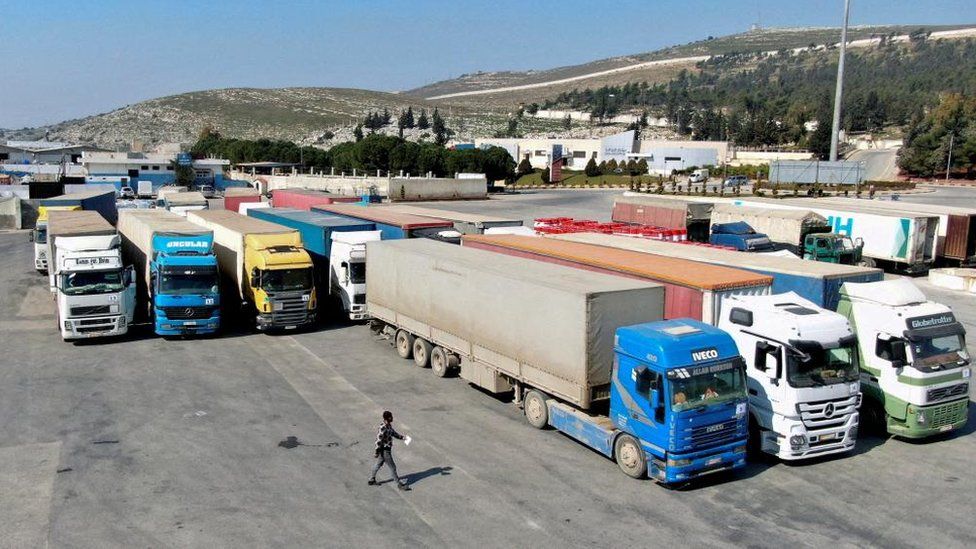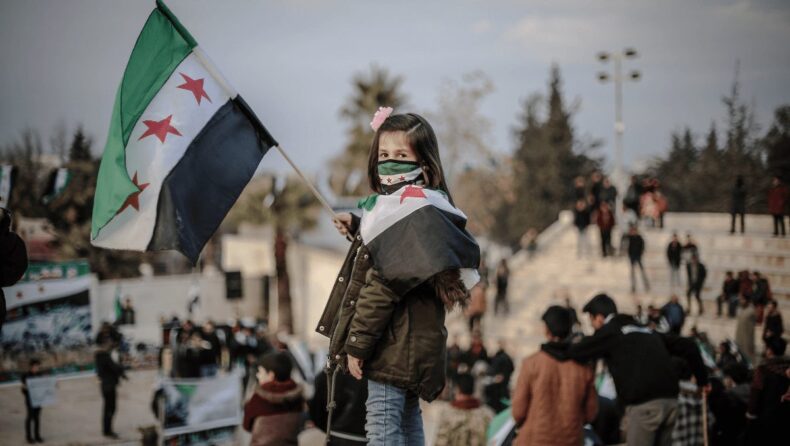The fate of a crucial humanitarian lifeline into Syria hangs in the balance as concerns intensify over the UN-Syria aid deal. This deal comes on the heels of a tumultuous period during which the UN Security Council grappled with the decision to extend the use of a critical crossing point.
The crossing, originating from Turkey and leading to Bab al-Hawa, is a lifeline for an astounding 4.1 million Syrians heavily dependent on aid. While the deal’s terms remain ambiguous, aid agencies are expressing apprehension about Syria’s potential manipulation of aid distribution, threatening the essence of the mission’s humanitarian principles.
Table of Contents
A Lifeline in Jeopardy
The Bab al-Hawa crossing has been a beacon of hope for millions of Syrians trapped amid a conflict-ridden nation. This conduit from Turkey has provided a vital channel through which food, medicine, and other critical supplies reach those who desperately need them. However, uncertainty loomed when the UN Security Council found itself at an impasse regarding the extension of the crossing’s usage, casting a shadow of doubt over the future of this humanitarian lifeline.
Syria’s Potential Manipulation
The lack of clarity surrounding the terms of the UN-Syria aid deal has sown seeds of concern within the humanitarian community. Aid agencies are fearful that the Syrian government might exploit this situation to manipulate the distribution of essential resources such as food and medicine.

Previously excluded from decision-making related to aid distribution, Syria’s newfound involvement raises concerns about the impartiality and effectiveness of the humanitarian mission. The fundamental principle of delivering aid based on need rather than political agendas could be compromised.
A Shift in Dynamics
The exclusion of Syria from the aid distribution process had been a deliberate choice to ensure the humanitarian mission’s neutrality. However, the recent UN-authorized operations through the Bab al-Hawa transit point, backed by Russia, have sparked debates about violating Syria’s sovereignty. This shift in dynamics has culminated in the UN-Syria aid deal, raising questions about the efficacy and safety of aid operations in a potentially altered environment.
Humanitarian Organisations’ Apprehensions
The International Rescue Committee, a prominent global relief group, has voiced its concerns about the potential consequences of this deal. They fear that removing the certainty and security provided by Security Council authorization might hinder the ability of humanitarian organisations, particularly Syrian NGOs, to function effectively. This could impact the core of the humanitarian mission, which is to alleviate suffering and provide a lifeline to vulnerable populations.
Six-Month Window and Earthquake Fallout
The UN has announced that the deal will keep the Bab al-Hawa crossing open for six months. This decision comes after a month-long suspension of operations following a dispute between Russia and other Security Council members tasked with extending the operations. The importance of this crossing has been magnified since a devastating earthquake struck northwest Syria in February, resulting in a catastrophic loss of life and displacement. The corner has become even more crucial in the aftermath of this disaster, underlining the urgency of maintaining efficient aid operations.
Continued Crossings and Conclusion
In addition to the Bab al-Hawa crossing, the UN-Syria aid deal also stipulates that Syria will allow the continuation of two additional border crossings for another three months. These crossings were initially opened with the consent of the Syrian government following the earthquake. Despite the concerns and uncertainties, this aspect of the deal provides a glimmer of hope for the continuation of critical aid operations.
As the UN-Syria aid deal unfolds, the world watches with bated breath, hopeful for the sustenance of a lifeline that millions of Syrians desperately depend on. The delicate balance between humanitarian principles, political considerations, and the urgent needs of vulnerable populations hangs in the balance, making this a pivotal moment in the ongoing Syrian humanitarian crisis.













